
OR
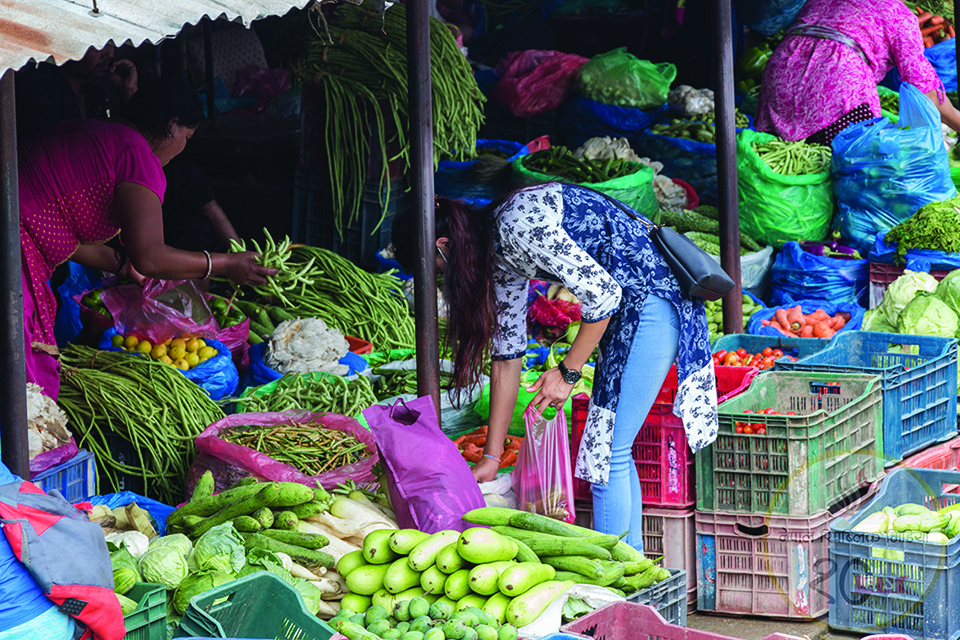

Simone Galimberti
Simone Galimberti is the Co-Founder of ENGAGE, an NGO partnering with youths to promote social inclusion in Nepal.simone_engage@yahoo.com
We literally share our lives with plastic. Most of us still do not realize how bad and dangerous this could be
On May 10, nations gathering at the United Nations Environment Program (UNEP) meeting in Geneva agreed to reboot the Basel Convention on the Control of Hazardous Waste, originally signed in 1989 to include plastic. After 12 days of consultations, 1400 representatives had agreed to treat plastic for what it is, a real threat to our existence.
It might take time for such policy level decision to find practical and meaningful implications in the lives of the people but the fact that almost all the nations, with the exception of the US, pushed new measures to control and track the ways plastic is used and stored is significant: Dumping or burning plastic materials or throwing them in river or oceans the way it has been done so far, is not only unsustainable but a true risk that is imperiling our lives and those of the future generations.
Some Eastern African countries like Rwanda, Kenya and Uganda have been the trailblazers in banning plastic bags. Mexico City recently approved a new comprehensive plastic ban that will come into force at the end of December 2020.
Then there is Nepal where officially plastic use is banned but it has been only partially enforced. Save for some supermarket chains which do not sell goods in plastic bags, implementation of the ban has been a total failure. In Bhatbhateni or other big marts you find people carrying their own more eco-friendly bags. Elsewhere, plastic bags rule. You may blame the shop owners for breaching the rule but we are also responsible. For example, while I might be more mindful of carrying an environmental-friendly bag when I visit Big Mart, I usually totally forget to use the same bag when I visit the small grocery.
At least I don’t buy milk package in plastic bag as I can easily carry it in my hands. This is the result of a tiny positive behavioral change that somehow I learned to incorporate in my daily routines. Behavioral change is often induced by awareness but more often by practical measures.
I have been always cautious about bans because I believe that a ban through stroke of legislation might not be as effective as one underpinned by a strong engagement with the public, involving public awareness but also other measures or actions that can induce someone to fully accept and internalize why, for example, plastic bags must be prohibited.
Charging customers five rupees the way big supermarkets are doing is a good way to let people start thinking twice about throwing away money to use a product that is harmful. Most of the households, at least those in urban spaces, are all loaded with plastic bags. We literally share our lives with plastic. Most of us still do not realize how bad and dangerous this could be.
Find the alternatives
Perhaps we need to find smart ways to induce the small shop keepers to get rid of their habits of giving away plastic bags so easily while reminding our relatives and friends and neighbors about turning down the plastic bag.
For the shop keepers, maybe it is a matter of economic incentives in the sense that for them these little plastic bags of white, red or blue colors are cheap and convenient and that is why it is difficult for them to do away with them. And there are plastic industries where many Nepalis may be working and earning a living. This may have led them to stand against the implementation of the ban.
But there still can be the way to bring these factories around the ban. The government should come up with some economic incentives, including tax credits, for these industries to revamp their businesses and turn themselves into manufacturers of more eco-friendly, less polluting products. This is going to happen in Mexico City where legislators are going to discuss a financial package to help plastic producers transition toward biodegradable products.
At the margins of the UNEP conclave in Geneva, a consortium of stakeholders, including big corporates like Coca Cola and Nestle, several universities, civil society organizations and governments launched Prevent, a new international waste alliance that promises to come up with new innovative solutions to “reduce as much plastic waste as possible”.
Bringing such a variety of players together can be daunting for they may be pursuing their own agenda but with the due framework that avoids any type of conflict of interests, partnerships can be built to overcome the most daunting challenges facing humanity: waste management.
Alarm bells
Germany, while shying away from a bold proposal promoted by France, Netherlands, Belgium, Sweden, Denmark, Spain, Portugal and Luxemburg to push further European Union’s targets to achieve net zero greenhouse emissions by 2050 at the latest, is endorsing efforts to improve plastic management. Few days back, Intergovernmental Science-Policy Platform on Biodiversity and Ecosystem Services (IPBES) published official executive summary of its global assessment. It states that around one million animal and plant species are at risk of extinction.
In September world leaders will gather for a strategic Sustainable Development Summit to review the progress toward the implementation of Sustainable Development Goals while the 2020 UN Biodiversity Conference will be held in Beijing in little more than a year. They are important but such gatherings are detached from our lives.
Climate change, unsustainable use of our resources, nature’s exploitation and unmanageable wastage are all interrelated threats to our humanity that must be tackled not only at policy level but also at personal levels. Ultimately it is up to us to take some little steps to change the status quo and guarantee survival of nature and humanity.
Interestingly, the IPBES’s report calls for systematic rethinking of how we live and earn our livelihoods and how our lives intertwine with nature. IPBES Chair, Sir Robert Watson, calls for a “transformative change, a fundamental, system-wide reorganization across technological, economic and social factors, including paradigms, goals and values.” Unfortunately there are, at best, mixed signs.
Change your habits
The UN Secretary-General Antonio Guterres, while visiting New Zealand to praise its government for recently introduced bold and progressive Zero Carbon Bill, shared that the “things are getting worse on the ground and political will is fading” in matter of fight against climate change. Therefore, each single action from the bottom can make the difference.
We could pause and reflect and come up with a personal commitment of not only becoming more environmental conscious but also leading to embracing micro eco–activism patterns through creative and personal actions.
Some schools, for example, have been banning plastic bags. Changing our habits is not impossible. In a recent trip to Malaysia a friend of mine refused to use a plastic straw in a restaurant, demanding an alternative.
Transformative changes can happen also through such actions. On a positive note, Chicken Station, a fast food outlet is partnering with Any Time Toilet (ATT) and TukTuk Nepal to allow its clients to bring home a small plant. Entering the outlet, you will see a small table with some small plants, each with a different name. They are all for free.
A small gesture of love towards ourselves and our nature can make the difference in the process of transformational change.
The author is Co-Founder of ENGAGE, an NGO partnering with youths living with disabilities
simone_engage@yahoo.com
You May Like This

Tragedy of commons
If we work together to limit emissions of greenhouse gases, environment can be saved ... Read More...

UML leader Basnet to Balen: Don't be pampered just because you have a few hundred fans on Facebook
KATHMANDU, August 26: While the Mayor of Kathmandu Metropolitan City (KMC), Balendra Shah, is speeding up the work to demolish... Read More...

Development without degrading environment stressed
NEPALGUNJ, June 9: Stakeholders from State 5, Karnali State and Far West State have stressed the need for accelerating development... Read More...


Just In
- No agreement reached to break parliament impasse, NC to continue house obstruction
- Former army chief Dharmapal Barsingh Thapa passes away
- Nepal's JRAP receives £13 million boost from FCDO for earthquake recovery
- NC to allow home minister to address parliament: UML Chair Oli
- Dr Govinda KC hospitalized, his hunger strike enters 6th day
- Three foreign women arrested with cocaine worth Rs 80 million
- HoR to meet at 4 PM today
- Sudurpaschim CM Sodari secures vote of confidence









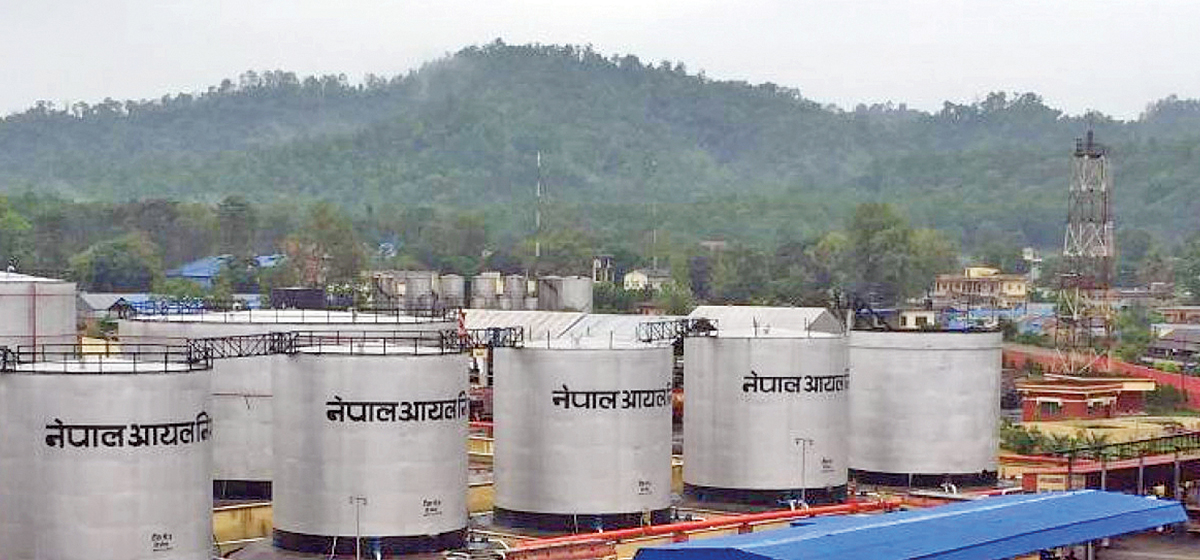
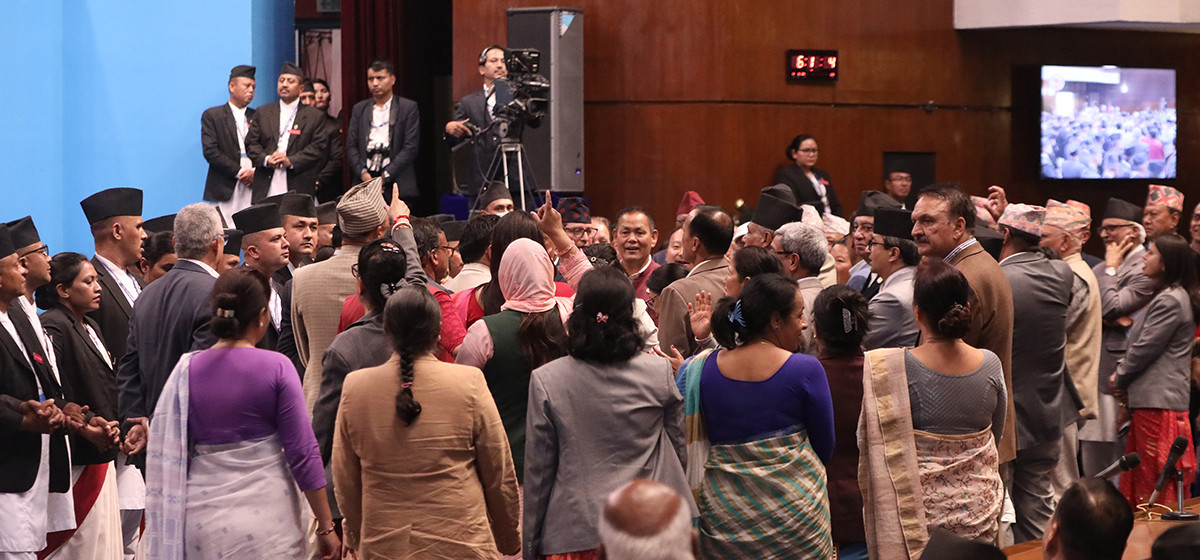
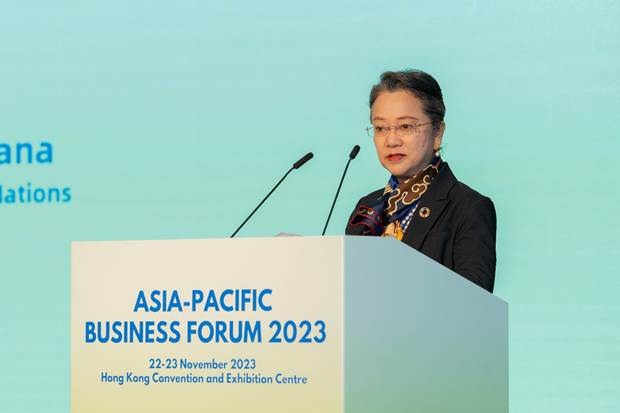

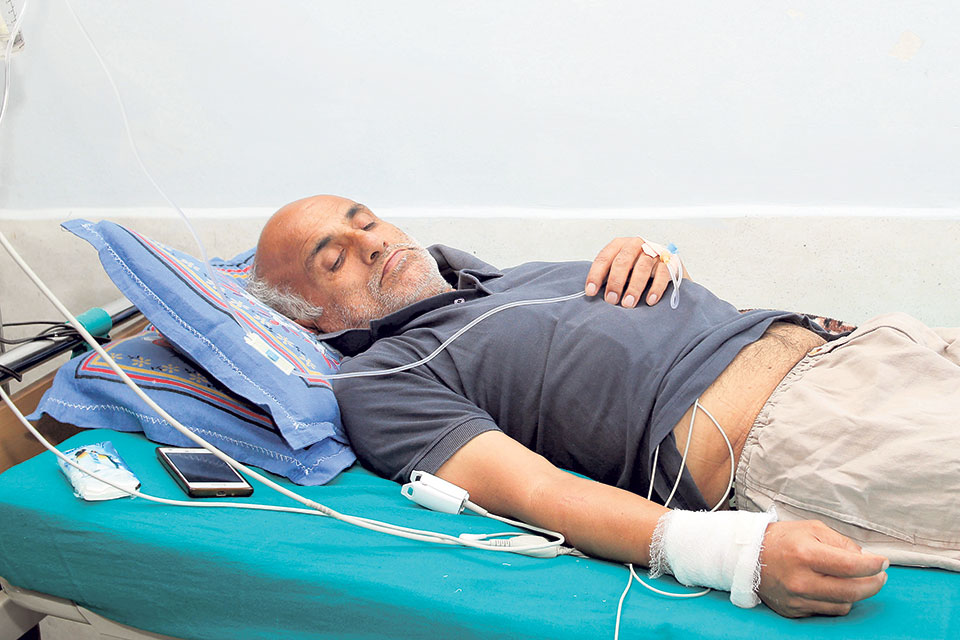

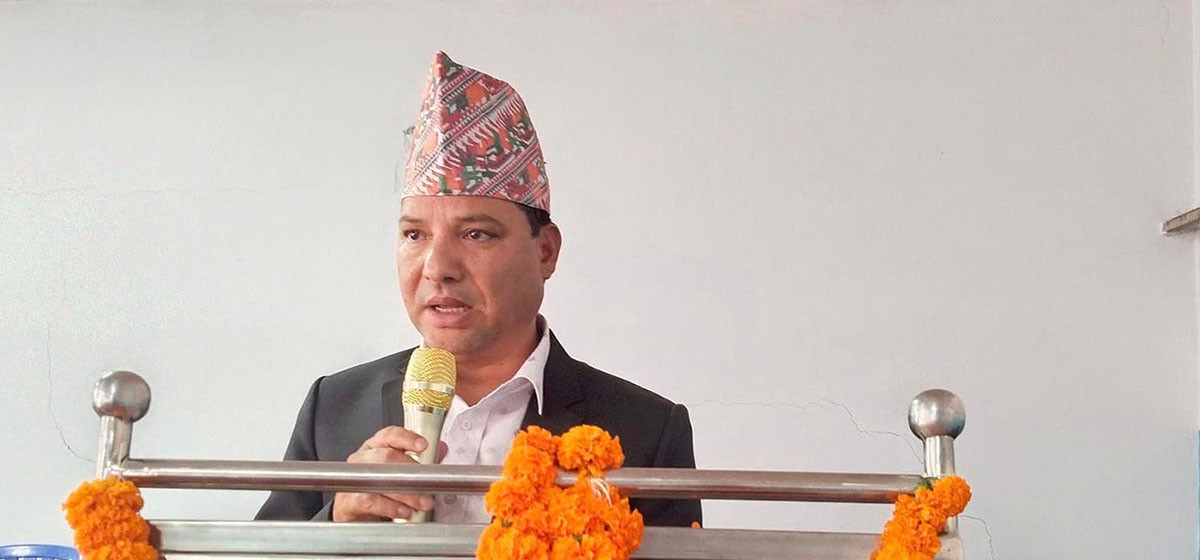
Leave A Comment